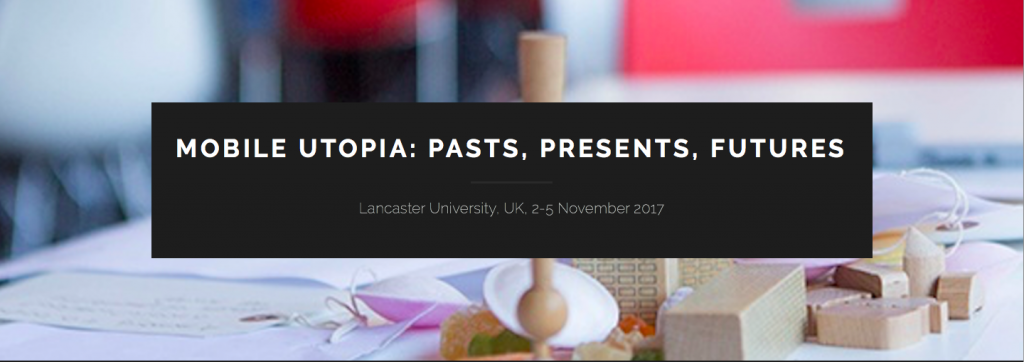Mobile Utopia 1851-2051
We’re organising a Conference!

![]()
Mobile Utopia 1851-2015 is a research co-creation project at the Institute for Social Futures that seeks to develop a deeper understanding of mobile utopias (and dystopias), and to creatively analyse and explore these. There are a range of activities. Please follow the links below to find out how you can participate:
12-14 December 2016 Writing Retreat
Mobile Utopia at the J Edmond Safra Fountain Court at Somerset House, London
24-26 June
Mobile Utopia at the Cemore Away Day
2 June 2016, Ellel Village Hall
Mobile Utopia @Lancaster Campus in The City
18th May 2016
Nicola Spurling at the Centre for Mobilities Research Showcase
20th April 2016
Mobile Utopias Research Co-Creation Workshop
19th April 2016, 11:00 – 16:00, Design Studio, Lancaster University
Mobilizing the Urban Model: A Workshop on Spatial Analysis and Mobile Utopias of Consumption, 18th April 2016, 09:30-15:00, Lancaster University, Bowland North, SR 07
Background
The project is developed through collaboration with different communities in Lancaster and Birmingham. It will take part in celebrations around the 500th Anniversary of the publication of Thomas More’s Utopia. The interdisciplinary group of researchers led by Nick Dunn, Professor of Urban Design, includes Monika Büscher, Lynne Pearce, Nicola Spurling, and Carlos López Galviz.
Critically, ‘mobile utopias’ are not transport utopias. Communicative, imaginative, embodied and disembodied, utopian and dystopian mobilities of information, people, goods, ideas as well as practices of immobilising, obstructions, borders, stasis, slowness intersect in the making of pasts, presents, futures. Here are some examples from our growing collection of utopian everyday objects and stories (click on the image to see more):
Mobile Utopias 1851-2051
Research Co-Creation Workshop
19th April 2016, 11:00 – 16:00
Design Studio – Lancaster University, United Kingdom – View Map
Preliminary Programme
10:00 – 11:00 Coffee and Hello
11:00 – 11:20 Introductions
11:20 – 12:30 Narrating the Utopian Everyday
12:30 – 13:15 Lunch
13:15 – 14:00 Infrastructuring Utopia
14:00 – 14:45 Living Utopian Ideologies
14:45 – 15:10 Coffee
15:10 – 16:00 Presentations & Discussion
How will we be living in 2051? How do we want to be living? As one of several activities associated with the funded research project, ‘Mobile Utopias 1851-2051’, this collaborative workshop invites participants to imagine and develop utopias of everyday life for 2051. In particular, we will focus on the participants’ ideal or dream scenarios for the future and on how their respective ‘utopian everyday’ might be lived in practice. We will explore why we choose these utopias, whose voices are missing, and how to bring utopia into being in personal and professional life, and the challenges we all face in the process.
In order to stimulate thought and discussion, we ask you to bring an object to the workshop capturing what, for you, is a key aspect of a mobile utopia or dystopia. Crucially, mobile does not only refer to transport alone, but to the communicative and imaginative movement of information, people, goods and ideas. Your object might be from the past, present or an (imagined) future. It should be small enough to hold in the palm of your hand, and ideally something that you can leave with us. In the workshop the objects will be used as inspiring starting points to narrate utopias of everyday life.
The workshop will review and create insights, materials and resources to develop the research, including audio/video clips, drawings, photographs, and maps. Materials provided will also include past visions and plans illustrating the changing faces of Lancaster, Birmingham and London. The material captures ideas about futures of the flows of goods and resources, energy, movement in public spaces and transport as well as the changing character of our homes and the nature of domestic life during the period 1851-2051.
Participants will be invited to imagine, develop and discuss utopias through a variety of means which might include the making of storyboards of the future, writing postcards from the future, and serious play with objects and models that are evocative of utopias and futures. By doing so, we hope to create a snapshot of how participants with a variety of concerns and priorities imagine futures, and the common and/or conflicting aspirations and ideals that emerge. The process will be captured in the form of an instant journal, and will also contribute to the development of a participatory artwork, to be exhibited as part of ‘Campus in the City’ in Lancaster city centre on 18th May 2016 and the Utopia Fair in Somerset House, London, on 24-26 June.
We have limited funds to pay for your travel to the workshop. If you require funding, please contact us, stating how much is needed. Lunch and other catering will be provided. Participants will be credited as co-creators on the project website.
Open Mendeley library on Mobile Utopia
Participants
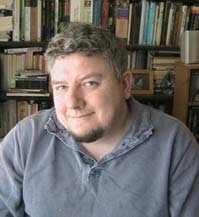 |
Baker, Brian I am currently researching and writing a book on the history of science fiction in the 1960s, which will extend work already completed on New Wave science fiction and literary experimentation. I am also pursuing new developments in critical/creative practice, as well as developing a collaborative projects on landscape, genre and the ‘eerie’, and on ‘Border Masculinities’. |
 |
Bruce Bennett is Senior Lecturer in Film Studies in the Lancaster Institute for the Contemporary Arts (LICA) at Lancaster University. He is author of the monograph The Cinema of Michael Winterbottom: Borders, Intimacy, Terror (Columbia, 2014) and co-editor of the collections Teaching Transnational Cinema: Politics and Pedagogy (Routledge, 2016) and Cinema and Technology: Theories, Cultures, Practices (Palgrave Macmillan, 2008). He has published articles on Hollywood cinema and the films of James Cameron and Michael Bay, documentary film and television, transnational film, the war on terror in film and TV, academic film theory and Georges Bataille, celebrity culture and photography. He is currently writing a monograph on the inter-related histories of cinema and the bicycle. |
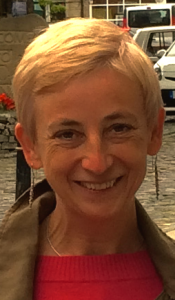 |
Monika Buscher is Professor of Sociology at Lancaster University, Director of the Centre for Mobilities Research and Associate Director at the Institute for Social Futures. Her research explores the digital dimension of contemporary ‘mobile lives’ with a focus on IT Ethics. She combines qualitative, ethnographic studies, social theory, and design through mobile, ‘inventive’ methods, and stakeholder engagement. She edits the book series Changing Mobilities (Routledge) with Peter Adey. |
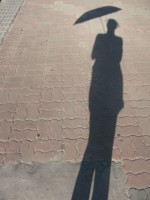 |
Fiona Jane Candy Through my evolving practice I engage with less conscious modes of perception such as touch, hearing, memory, sense of time, atmosphere: when mind, body and world mutually interact and influence one another. Movement is a constant energy within my work, as are colour, myth and legend. I’m intrigued by the ancient hypothesis of ‘Anima Mundi’: the existence of the earth’s soul (see my image album with this title) and I find C. G. Jung’s ideas of synchronicity, archetypes and the collective unconscious very compelling. |
 |
Peter Cox began working on the sociology of cycling in 2004 after previously working in the bicycle trade and in intentional communities. His first degree was in Independent Studies at Lancaster. He completed a PhD (Philosophy) on Gandhian Models of Social Change in 2002. With Dave Horton and Paul Rosen he was co-editor of Cycling and Society (Ashgate 2007). He teaches in the department of Social and Political science at the University of Chester in the UK and in 2014-15 was awarded a Leverhulme International Academic Fellowship to work at the Rachel Carson Center for Environment and Society in Munich. His interdisciplinary research combines both historical archive and ethnographic methods to investigate cycling practices. In 2015, he edited Cycling Cultures (University of Chester Press) and is currently working on a new book entitled Cycling: toward a sociology of velo-mobility. Outside of the office, he enjoys touring and endurance cycling when time allows, and is a lifelong cycle commuter. |
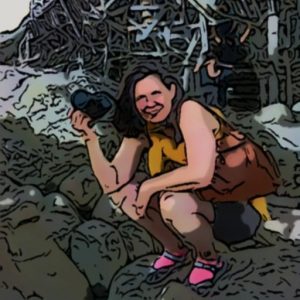 |
Grete Dalum-Tilds is a lecturer and photographer based at the University of Northampton and Stevenage Museum. Through publishing the oral history project Talking New Towns online and in schools, she is exploring how the recording of peoples voices combined with historical commercial and private photographic records can capture the development of the new towns and development of lives in a heritage context. Her research focusses on the recording of memory and how this is linked to and embedded in the physical environment. |
 |
Mike Dring is an architect, senior lecturer, MArch programme director and researcher at the Birmingham School of Architecture. He brings seven years of professional practice to his role with a track record of delivering award winning projects. He is involved in a number of emergent and established research projects and groups spanning architecture, urbanism, art and design, and ecology.
|
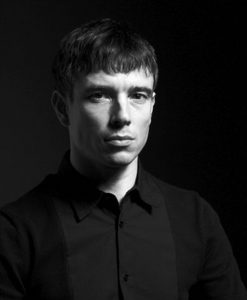 |
Nick Dunn is Professor of Urban Design at ImaginationLancaster and Research Director of the Lancaster Institute for the Contemporary Arts at Lancaster University. He is Associate Director of the Institute for Social Futures, where he also leads research in the Future of Cities and Urbanism. His work responds to the contemporary city as a series of systems, flows and processes, and is explored through experimentation and discourse addressing the nature of urban space: its perception, demarcation and appropriation. |
 |
Chris Hatton is Professor in the Faculty for Health and Medicine at Lancaster University: I am interested in a wide range of research projects concerning people with intellectual (learning) disabilities. Areas of current research interest include examining and working to reduce the health and social inequalities experienced by people with intellectual disabilities and evaluating innovations in social policy and practice such as self-directed support and short breaks for families with a disabled child. |
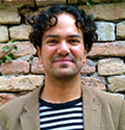 |
Carlos López Galviz is a Lecturer in the Theories and Methods of Social Futures at Lancaster University: My work looks at futures thinking and future forming through the lens of cities, ruins and infrastructure. I have studied cities like London, Paris and Shanghai, using history as a means of thinking about what theories and which methods are relevant to understanding their future today and in the past. I am interested in research that is comparative and collaborations that combine disciplinary rigour with cross-disciplinary openness. |
| David McKenna is a Landscape Architect who previously practiced as an engineer. He has worked in private practice for the last 15 years and leads a team of 9 Landscape Architects at IBI http://www.ibigroup.com/ , a large North American based consultancy firm which also includes Town Planners, Urban Designers, Transport Planners, Architects and Intelligent Systems. David’s interests include changing the balance in the design of streets and spaces to improve their social and economic value whilst accommodating vehicles. | |
 |
Georgia Newmarch went to @RCA and wrote about coal and the design of industrial action. Now PhD Institute for @social_futures researching infrastructure and disruption. |
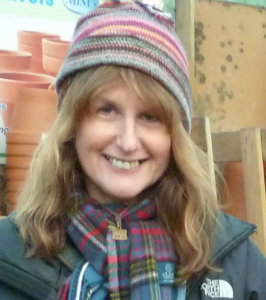 |
Lynne Pearce is Professor of Literary Theory at Lancaster University (UK) and has published widely in the fields of feminist literary and cultural theory, romance studies, reader-theory and mobilities studies since the 1990s. Her most recent publications include the co-authored Postcolonial Manchester (Manchester University Press, 2013) and Drivetime: Literary Excursions in Automotive Consciousness (Edinburgh University Press, 2016). She is currently CeMoRe’s Director for the Humanities. |
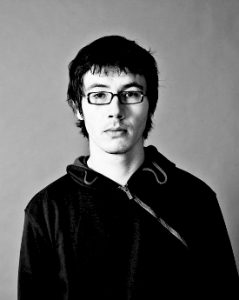 |
Cosmin Popan My PhD thesis investigates the possibilities for everyday urban cycling to become a socio-technical system that replaces automobility. This exercise requires two necessary conditions: a utopian vision and a de-growth agenda. My thesis focuses on three aspects of a putative bicycle system: First, there are the cycling sensescapes: how senses operate differently, how some are awakened and others reconfigured, how sensory tolerances are built. Second, there are the sociabilities of cycling together, creating the skills and confidences needed for a successful mass practice. Third, there are infrastructures, both physical and non-physical, whose promises of speed and progress I challenge. |
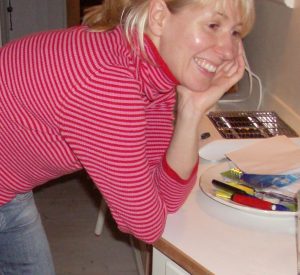 |
Nicola Spurling is a Lecturer based in Sociology and the Institute for Social Futures at Lancaster University. Her research explores everyday futures and their implications for energy and transport demand, drawing on futures research and social theories of practice. She is interested in how working lives, daily lives and mobility have changed since 1950, and has a particular interest in New Towns as sites for futures research. |
 |
Colin Stones |
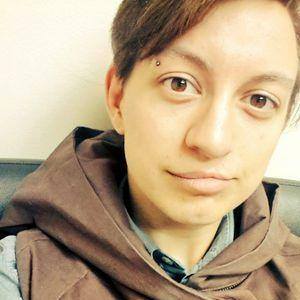 |
Zoyander Street I am a historian, linguist and writer for games and playful art. My writing looks at play, games and software within material and symbolic systems of every scale: from the tiny emotional loops of caring for a virtual pet, to the massive macro network of meaning making in late capitalism. I work on a freelance basis, bringing my interpretive and expressive skills to a range of projects in different media. |
 |
Yolande Strengers is a Senior Research Fellow at the Centre for Urban Research, RMIT University in Melbourne, Australia. She currently co-leads the Beyond Behaviour Research Program and holds a three year Australian Research Council Discovery Early Career Research Fellowship on automating the smart home. Yolande has written about ‘smart utopian’ futures and their alternatives. She is interested in the idea of ‘social practice imaginaries’ as a way to disrupt dominant smart visions and imagine other possible realities. |
 |
Szarota, Magdalena |
Campus in The City – 18th May 2016, Lancaster City Centre Arcades
Please come and join us to explore utopia as method, critique and play.
